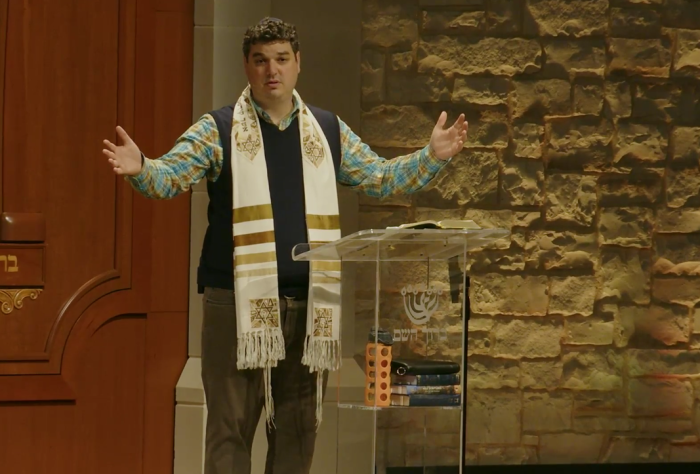Messianic rabbi points Jews, Gentiles to Christ in the heart of the Bible Belt

DALLAS, Texas — "Your application to be in the chili cook-off has been denied."
In a million years, Messianic Rabbi Ari Waldman never would have expected his congregation would not be allowed to compete in a Jewish-run Texas chili cook-off.
And yet, when the senior rabbi of Dallas-based Baruch Hashem politely asked why, he said he was simply told, "You're not a Jewish organization."

"[They] never outright said it's because we believe in Jesus," said Waldman. "But that was the implication."
Waldman, a North Texas native who has served as senior rabbi of Baruch HaShem since 2017, is no stranger to sideways glances and puzzled expressions when he tells people he's a Messianic Rabbi.
Sitting in his office against a backdrop of books on theology and history, Waldman recalled a conversation he had while attending seminary at The King's University in nearby Southlake, one he says is symbolic of his ministry.
One day, while having lunch with a friend, Waldman recalled being introduced to another classmate as a Messianic Jew.
"He looks at me and goes, 'So what's so important about you guys?' And I said, 'Not a lot, really,'" he said. "And he goes, 'Why is it important for you to have a Messianic congregation?'"
Waldman then pointed him to Jesus' promise in Matthew 23:39, when Jesus says to the Jewish leaders, "For I tell you that you will not see Me again until you say, 'Blessed is He who comes in the name of the Lord.'" Waldman then explained that the original Hebrew of the verse would read something like, "We welcome you into this place."
"I said, 'That means He's not gonna come back until the Jewish city of Jerusalem welcomes Him back, and it's the capital of the Jewish state,'" said Waldman.
"And he looks at me and goes, 'That's the first time that anybody's ever explained that to me from the New Testament.'"
Waldman said he's not bothered by such reactions since he recognizes that many Christians tend to think theologically only in terms of the New Testament. And while some may think a Messianic congregation would focus exclusively on the Torah — Genesis through Deuteronomy, the first five books of the Bible — they would be mistaken, he added.
"For me, Romans 11 is where it starts, where Paul says there's a particular role for Jewish people and a particular role for Gentiles," said Waldman. "The Gentiles are to provoke the Jewish people to jealousy for their own God … and the role of Jewish people is to be a light to the nations."
If both parties are doing their job, he explained, then "that brings more nations to the God of Israel, then those 'more nations' provoke more Jewish people, so it's what I call a symbiotic relationship that only gets bigger."
The problem comes, Waldman said, when one of those two parties fails to fulfill their role — a failure of which, he added, both groups are guilty.
Ian M. Giatti is a reporter for The Christian Post. He can be reached at: ian.giatti@christianpost.com.




























